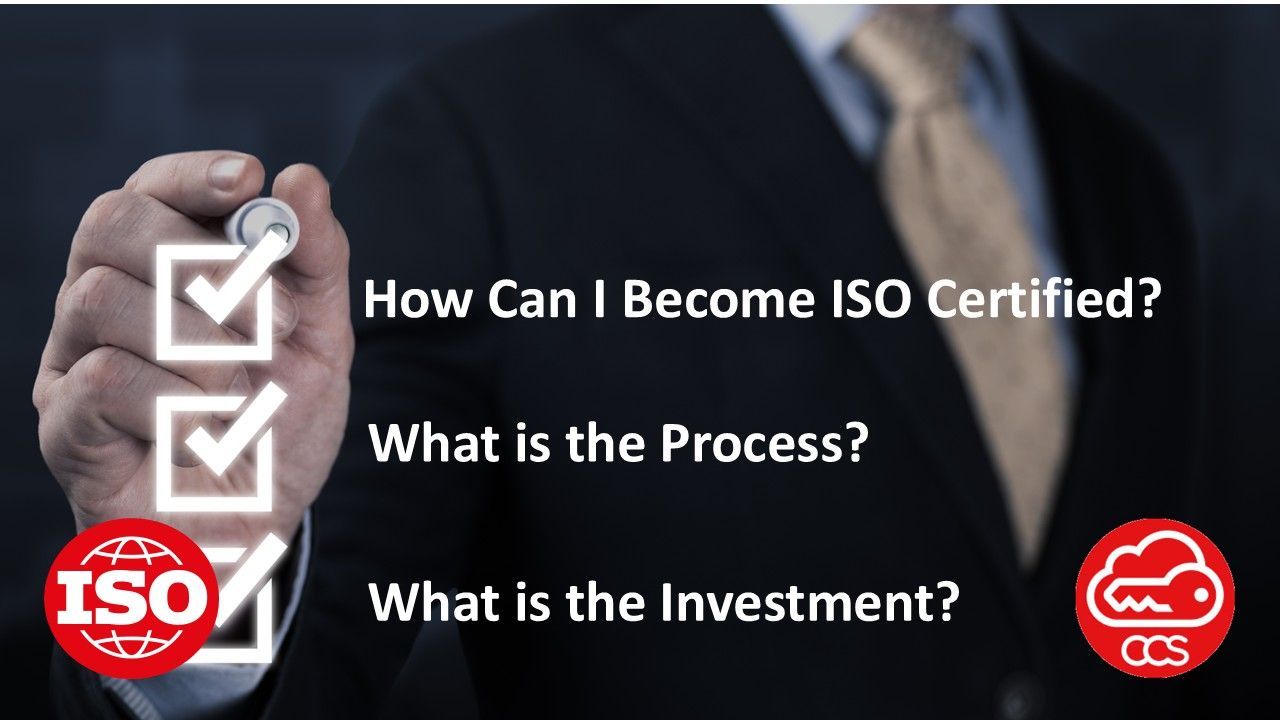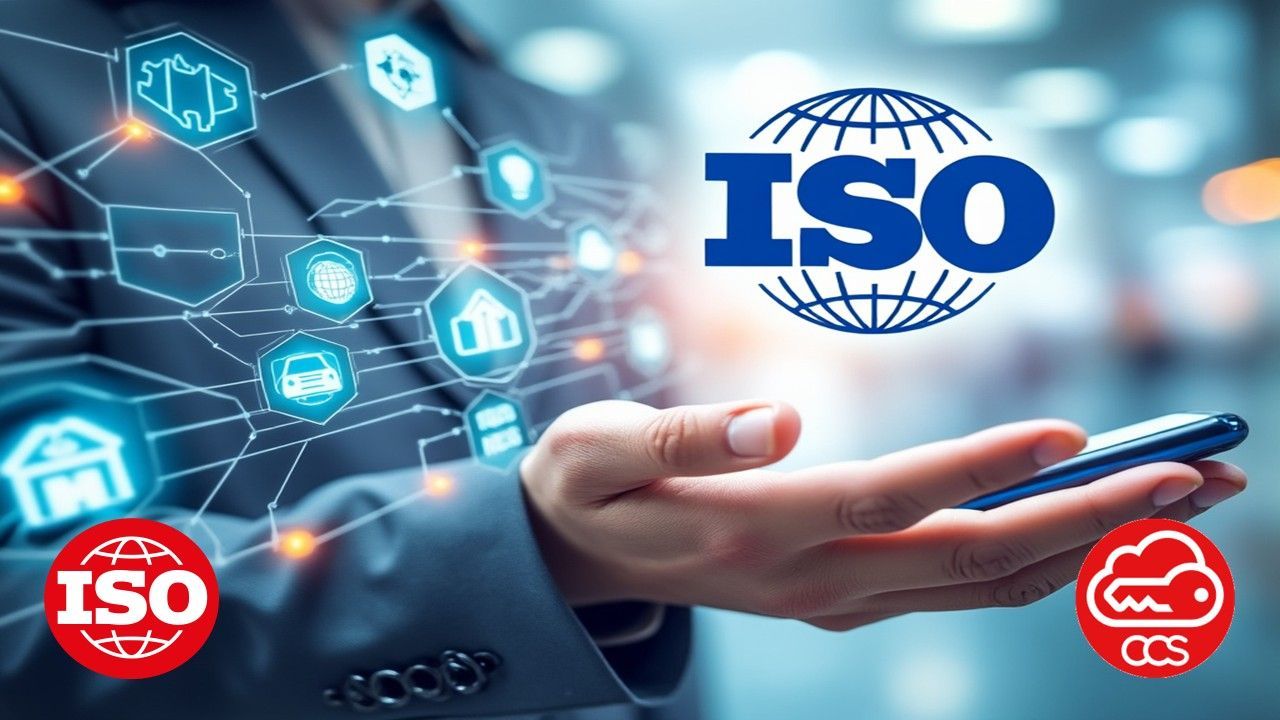ISO 27001:2022, developed by the International Organisation for Standardisation (ISO), is a leading standard for Information Security Management Systems (ISMS). It provides a comprehensive framework for organizations to establish, implement, maintain, and continually improve their information security management system.
Published in October 2022, ISO 27001:2022 replaces the previous version (ISO 27001:2013). The International Accreditation Forum (IAF) outlines a 3-year
Transition Period for organizations currently certified to ISO 27001:2013. Both standards remain valid during this time, but organizations must transition before the end of the period.
The primary goal of ISO 27001 is to help organizations systematically manage information security risks by identifying potential threats, assessing their impact, and implementing appropriate controls to mitigate risks effectively. By adopting ISO 27001, organizations can demonstrate their commitment to protecting sensitive information and meeting regulatory and contractual requirements related to information security.
Key elements of ISO 27001 include:
- Risk Assessment and Treatment:
- Identifying and assessing information security risks, determining acceptable levels of risk, and implementing controls to mitigate or manage identified risks.
- Information Security Policy:
- Establishing an information security policy that defines the organization's commitment to information security and provides a framework for setting objectives and targets for information security management.
- Organization of Information Security:
- Defining roles, responsibilities, and authorities for managing information security within the organization and ensuring that employees and other relevant stakeholders understand their roles in protecting information assets.
- Asset Management:
- Identifying information assets, classifying them based on their importance and sensitivity, and implementing appropriate measures to protect them from unauthorized access, disclosure, alteration, or destruction.
- Access Control:
- Implementing controls to ensure that only authorized users have access to information resources and that access rights are granted based on business and security requirements.
- Cryptography:
- Using encryption and other cryptographic techniques to protect sensitive information during storage, transmission, and processing.
- Physical and Environmental Security:
- Implementing measures to protect information assets from physical threats, such as theft, vandalism, fire, and natural disasters.
- Incident Management:
- Establishing procedures for detecting, reporting, assessing, and responding to information security incidents, including breaches, vulnerabilities, and unauthorized access attempts.
- Continual Improvement:
- Monitoring and measuring the effectiveness of the information security management system, conducting regular reviews and audits, and implementing corrective and preventive actions to address deficiencies and improve performance over time.
ISO 27001 certification involves a
third-party audit to assess whether an organization's information security management system conforms to the requirements of the standard. Certification demonstrates to stakeholders, including customers, partners, regulators, and the public, that the organization is committed to protecting sensitive information and managing information security risks effectively.
Why ISO 27001:2022 Matters for Your Business:
ISO 27001:2022 holds significant importance for your business, offering a comprehensive framework for managing information security risks and protecting sensitive data. Here's why it's crucial:
- Enhanced Information Security:
- Establishes and maintains a robust ISMS, enabling the identification, assessment, and addressal of potential security risks. Ensures the confidentiality, integrity, and availability of information within the organization.
- Legal and Regulatory Compliance:
- Assists in compliance with relevant legal, regulatory, and contractual requirements related to information security. Demonstrates commitment to protecting sensitive data, avoiding penalties, legal liabilities, and reputational damage.
- Customer Trust and Confidence:
- Certification serves as tangible proof of commitment to information security, instilling confidence in customers, partners, and stakeholders. Demonstrates implementation of internationally recognized best practices for information protection and data privacy.
- Competitive Advantage:
- Provides a competitive edge by meeting the requirements set by organizations requiring compliance with ISO 27001. Acts as a valuable differentiator, aiding in winning new business opportunities and securing partnerships.
- Risk Management:
- Adopts a risk-based approach to information security, proactively identifying and addressing security risks. Minimizes the likelihood and impact of security incidents, such as data breaches, unauthorized access, or system disruptions.
- Continual Improvement:
- Emphasizes the importance of continual improvement in information security management. Encourages regular review and updating of security controls, adaptation to changing threats and vulnerabilities, and staying proactive in managing risks.
- Business Resilience:
- Enhances organizational resilience to potential security incidents by establishing incident response procedures, business continuity plans, and disaster recovery measures. Ensures effective response to and recovery from security breaches or disruptions.
ISO 27001:2022 establishes a strong foundation for information security, enabling organizations to protect valuable assets, maintain customer trust, meet regulatory requirements, and position themselves as secure and reliable partners in today's digital landscape.



